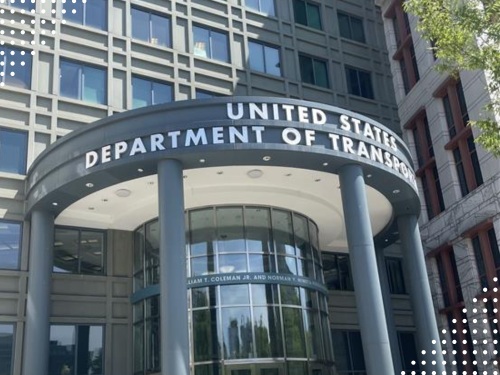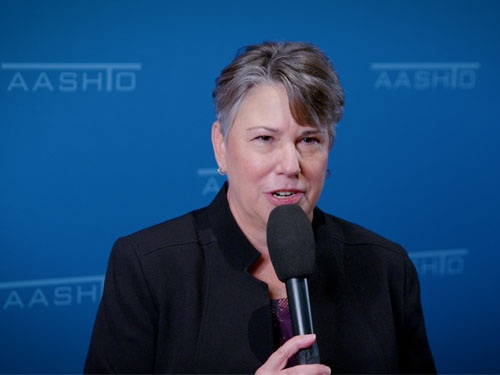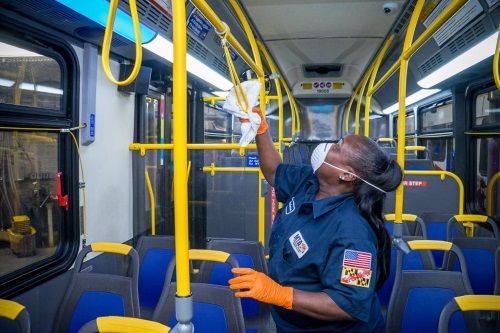The American Association of State Highway and Transportation Officials sent a letter to the Federal Transit Administration on April 14 outlining “thoughts and recommendations” from its Council on Public Transportation on ways the agency can maximize aid to state DOTs and their transit sub-recipients during the COVID-19 national emergency.
[Above photo by the Maryland Transit Administration.]
“The FTA is uniquely positioned to assist state DOTs and public transit agencies in their response to the COVID-19 crisis and for future emergency responses that may drastically affect public transit ridership and services,” the group said in its letter; identifying three key focus areas for the agency going forward:

- Flexibility within FTA’s grant approval process: “This would allow FTA to facilitate the distribution of funding by allowing recipients to reopen and modify grants already submitted,” AASHTO said. “Moreover, state DOTs and transit systems should be allowed to submit several grant modifications based on priority needs and a revised program of projects.” For any future distributions, greater flexibility in applying federal program funds to projects without arbitrary deadlines and allowing for changes to projects based on evolving local priorities would be a further boon.
- An NTD “hold harmless” adjustment provision: Since the National Transit Database – and the information included within it – is a critical aspect in terms of annual funding for transit, AASHTO encouraged the FTA to waive the next NTD reporting period(s) by implementing the National Disaster Hold Harmless Adjustment provision in the NTD for all transit providers. “By implementing this provision, states DOTs and transit systems could utilize service statistics for apportionment calculations from outside of the disaster period,” the group said.
- Waiver for Incidental Use: “State DOTs oversee rural public transportation agencies that transport meals to people who are home bound or unable to travel,” the group said. “In this time of crisis, state DOTs can provide necessary transit services to keep these nutrition programs afloat and effectively serving those in need.” Thus AASHTO asked FTA to waive incidental use during this crisis period including to allow that work to continue.
Separately, the FTA issued a Safety Advisory on April 14 that included recommended actions to reduce the risk of COVID-19 exposure among transit employees and passengers, which include face coverings, social distancing, frequent hand washing, facility and vehicle cleaning, and other measures to the maximum extent practicable.
FTA Acting Administrator K. Jane Williams noted in a statement that transit agencies develop and implement procedures and practices consistent with all applicable guidance and information provided by both the Centers for Disease Control and Prevention and the Occupational Safety and Health Administration to ensure the continued safety of transit passengers and employees during this public health emergency.
 Top Stories
Top Stories
USDOT Makes $1.5B Worth of BUILD Grants Available
December 19, 2025 Top Stories
Top Stories

